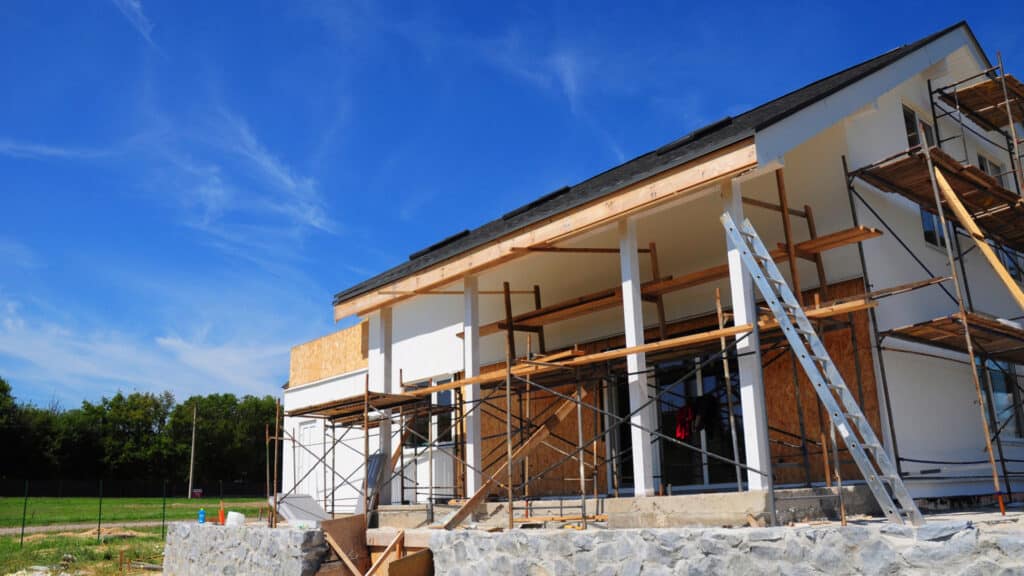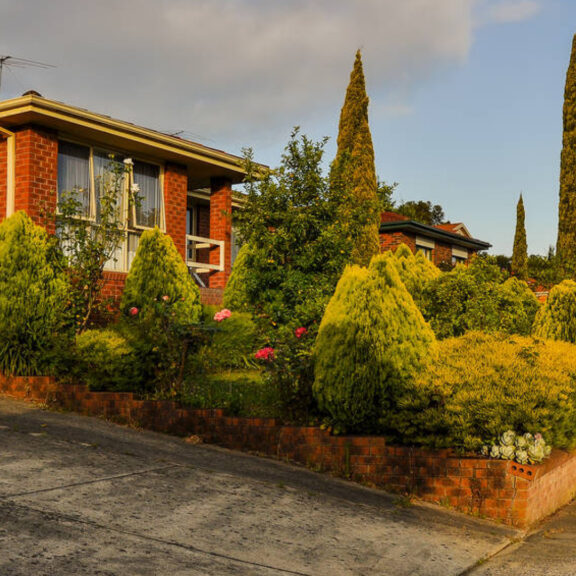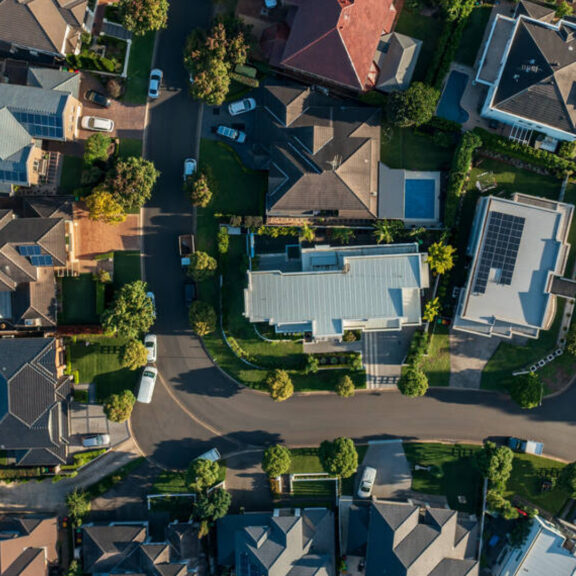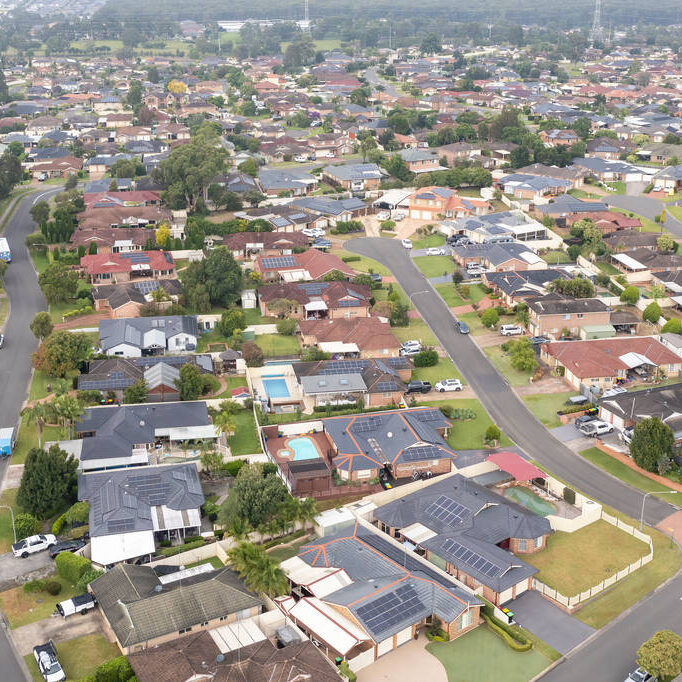You may be chasing more affordable prices, dreaming of a lifestyle change, or spotting investment potential in a different market altogether. No matter the reason, buying property in another state can be pretty tempting. But let’s be clear: buying interstate isn’t quite the same as finding a place down the road. You may have to […]
How Do Construction Loans Work When You Own the Land?
We’ve all heard the adage, “Location, location, location!” And for many homeowners, having the perfect piece of land is the dream foundation for building their ideal house. But once you have that pristine parcel, the next question beckons: how do construction loans work when you own the land, especially in Australia?
Let’s unravel the intricacies of construction loans in Australia, especially for those lucky enough to already have a plot of their own.
Owning the Land: A Game-Changer for Borrowing Power
You’re not just stepping into the loan game with hopes and dreams; you’re stepping in with tangible land. This is a pivotal factor in your construction loan journey. Here’s a deeper dive into the benefits of owning the land when applying for construction loans:
- Equity Boost: Your land isn’t just dirt and grass—it’s a financial lever. Owning land can dramatically bolster your equity, enhancing your construction loan borrowing power. In simpler terms, your plot can be your most compelling argument when negotiating your loan terms.
- Reduced Deposit: Since you’re already invested, quite literally, in your dream, lenders may use the equity in your property in lieu of a cash deposit.
- Appreciation in Value: Depending on the location and the duration you’ve owned the land, its appreciation could be beneficial. If your land’s value has increased since purchase, it might further augment your borrowing power.
Can You Use Your Land as Equity for a Construction Loan?
Yes, you can use your land as equity for a construction loan. As mentioned, when you own a piece of land outright (meaning without any outstanding loans against it), its value can be counted as equity. If there’s a mortgage on the land, the amount of equity is the appraised value of the land minus what you still owe. But of course, you have to consider a few factors when going this route:
Land Valuation
Lenders usually require a recent valuation of your land before determining how much they’re willing to lend. This valuation will help ascertain the land’s current market value, which, in turn, determines your equity.
Total Loan-to-Value Ratio (LVR)
Lenders use the LVR ratio to assess the risk of recovering their funds if the borrower were to default. It’s the loan amount as a percentage of the value of the property (in this case, the land plus the proposed construction). Having significant equity in the land can help in achieving a lower LVR, which is often seen as less risky by lenders and can help you avoid paying lenders mortgage insurance if the LVR is less than 80%.
Completion and Conversion
At the end of the construction, most construction loans are converted (or refinanced) into a standard home loan. At this stage, the final value of the property (land + construction) will play a significant role in the terms and conditions of the converted loan.
Debt Reduction
Any amount you still owe on the land will be factored into your construction loan. The less you owe, the better your borrowing capacity.

Let’s Delve Deeper: Pros and Cons of Land Equity Construction Loans
Navigating construction loans can often present various paths and choices. Using your land as equity is one such strategic option. While it comes with its own set of benefits, there are considerations to be aware of, too. Let’s examine the pros and cons of land equity construction loans to equip you with a clear understanding.
Pros:
- Increased Borrowing Power: The equity in your land can boost the amount you’re able to borrow for your construction loan.
- Better Construction Loan Terms: Lenders may offer better terms, given the collateral in place.
- Lower Down Payment: Your equity might reduce the initial amount you need to outlay.
Cons:
- Dependent on Valuation: If the land’s valuation is lower than expected, it could affect the construction loan amount.
- Higher Risk: Failure to complete construction or repay the loan could result in loss of the land.
What’s the Difference Between a Land Loan and a Construction Loan?
While both are involved with land, they serve different purposes. It also pays to differentiate these two loan types to ensure you’re making an informed decision when using land (with an outstanding mortgage) as equity for a construction loan.
A land loan focuses exclusively on financing the purchase of land. Its tenure is typically shorter and might have higher interest rates. On the other hand, a construction loan funds the building process and typically merges the land loan into it, resulting in a single mortgage once construction concludes.
Note that some lenders provide construction loans for homes, whether you’re building your home while buying the land or building on land you already own.
Lay Your Foundations with Deltos Finance
So, how do construction loans work when you own the land in Australia? They can be complex but rewarding. This is where a construction loan broker, like Deltos Finance, plays a crucial role. Our expertise ensures you secure a construction loan that matches your project seamlessly.
Get in touch with us today, and let’s craft your dream home from the ground up.
Enquire Now
Find Your Perfect Finance Solution
Let's discuss your finance needs. We’re here to help.
More posts from Deltos Finance

Suburbs with the Highest Rental Yield in Tasmania
The term “rental yield” is music to any property investor’s ears. It’s the key metric that indicates the annual return on your investment, essentially the percentage of the property’s value that comes back to you in rental income. In a market like Tasmania, which has been gaining traction for its overall investment appeal, pinpointing the […]

Launceston: A ‘Second Wind’ Property Market You Should Invest in Now
When talk turns to Tasmania’s property scene, it’s easy for the spotlight to shine brightly on Hobart, with its bustling waterfront and historic charm. But just a little further north, nestled at the head of the picturesque Tamar Valley, lies Launceston—a city that quietly hits its stride and presents a compelling proposition for savvy property […]

How Often Does Property Double in Value?
Every homeowner has likely dreamed of their property doubling in value in the future, turning into a valuable nest egg or funding their next big adventure. But how long does it actually take for a property to double in value? And how often does it happen? While there’s no magic eight-ball to predict the property […]

Stamp Duty Exemption for First-Home Buyers in Tasmania: Has It Paid Off?
Purchasing a property has historically come with major financial difficulties, especially for first-home buyers in Tasmania or any other state for that matter. The stamp duty is one of those most notable monetary challenges for homebuyers. Essentially, it’s a tax levied on property purchases that often adds tens of thousands of dollars to upfront costs. […]

Difference Between Airbnb and Traditional Renting in Hobart
Hobart’s property market has become a hotspot for investors largely because of its strong tourism demand and stable rental market. But that doesn’t mean all property investments in this Tasmania capital are a sure win. One factor to consider is deciding between short-term rentals like Airbnb and traditional long-term renting. Each option has distinct advantages […]

Is Launceston a Good Place to Live?
The short answer is yes, especially if you want a more affordable lifestyle without giving up access to key services, natural beauty, and long-term opportunities. Also, with its blend of heritage charm, steady economic growth, and a property market still within reach for many Australians, Launceston, Tasmania, is gaining momentum as a popular area for […]

Hobart Property Management Fees: A Complete Guide
You’ve already secured an investment loan and finalised your rental property purchase in Hobart. Now, it’s time to take action by listing the property for rent and managing it effectively to start generating rental income. But how much should you expect to spend on property management in Hobart, Tasmania? As Tasmania’s capital continues to attract […]

How Rising Property Prices Affect Your Home Loan and Buying Potential
Here’s the good news: the Australian real estate market has been experiencing significant growth in recent years, with house prices in major cities reaching record highs. It can be a huge win for homeowners and investors, especially those planning to sell their properties soon. However, this can be an issue for potential property buyers, including […]

Build Your Wealth with a Simple Guide to Using Your Home Equity
Building wealth requires adopting the right mindset and being strategic when using available financial instruments. Essentially, it’s about making your money work in your favour. But what if you don’t have enough cash to start creating wealth? There’s an underutilised strategy that we want to share with you, and that is leveraging your home’s equity—the […]


